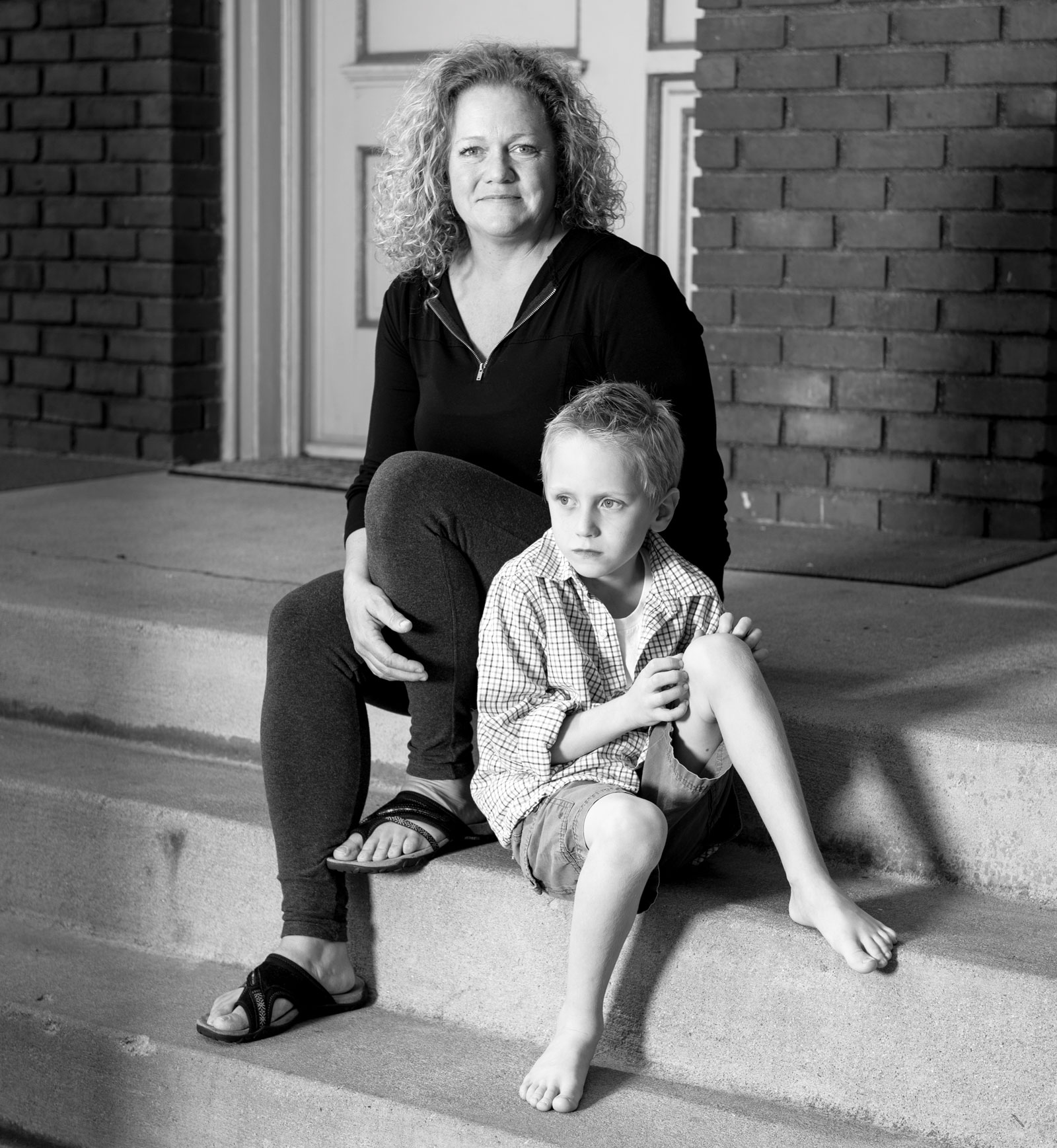The Local newsletter is your free, daily guide to life in Colorado. For locals, by locals.
As DeAun Stanley reads from an illustrated book, her six-year-old son, Myles, follows along, absentmindedly wiggling his loose front teeth with his tongue. The Spider-Man costume he changed into after dinner crinkles as he shifts to be closer to his mother. The pair cuddle on a trundle bed in a 225-square-foot room that is home—at least for now. The quiet time is welcome, especially after a hectic communal dinner with the other 13 kids and seven moms who temporarily live in Champa House.
This brick building in Curtis Park is rumored to have once been a brothel, and the upstairs bedrooms are still broken up by a mazelike hallway. Much like the families staying here, the building has a new purpose. It houses a two-year program for women—all of whom have young children or are pregnant—working toward self-sufficiency. Outgoing program director Amy Fletcher says most of the women she works with are “hidden,” meaning they don’t fit the federal government’s definition of homeless but are at risk. “They weren’t out on the street,” she says. “But they were kicked out, or in domestic abuse situations, or living on couches.”

These are women like 43-year-old Stanley, who once worked as a dental office manager, drove an Oldsmobile Cutlass Ciera, and owned a home. She met Myles’ dad shortly after a divorce. “He introduced me to drugs, but I chose to use them,” Stanley says today. “I got into a rut. I was in a bad relationship and made some bad choices.”
While pregnant with Myles in 2008, she spent more than a month in jail for trying to pawn stolen jewelry. She was sober when Myles was born, but her life continued to unravel. She left Myles’ dad in 2010 and had limited contact with her two children from previous relationships (she is in touch with them now). She struggled to find a regular job and moved around. Last year, she and Myles spent five months in shelters and motels before being accepted into the Champa House program. When she got kicked out for having a banned phone and had to reapply, Myles’ reaction was somber: “Don’t break the rules,” he told his mom. “I don’t want to move anymore.”
The pair has a tentative, but steady, pattern now. Myles goes to school; Stanley attends classes at the house. They play, eat dinner, read books, and get ready for bed. Myles has friends. They have their own room, even if most Denver residents would balk at the tiny size. Stanley receives $364 in government assistance each month. After program fees, debt repayment, personal groceries, and occasional gifts for Myles, she’s starting to put a little away for life after Champa House. “I’ve been on both ends of the spectrum: stable and functioning, and unstable with no idea what’s next,” she says. “I’m digging myself out.”








